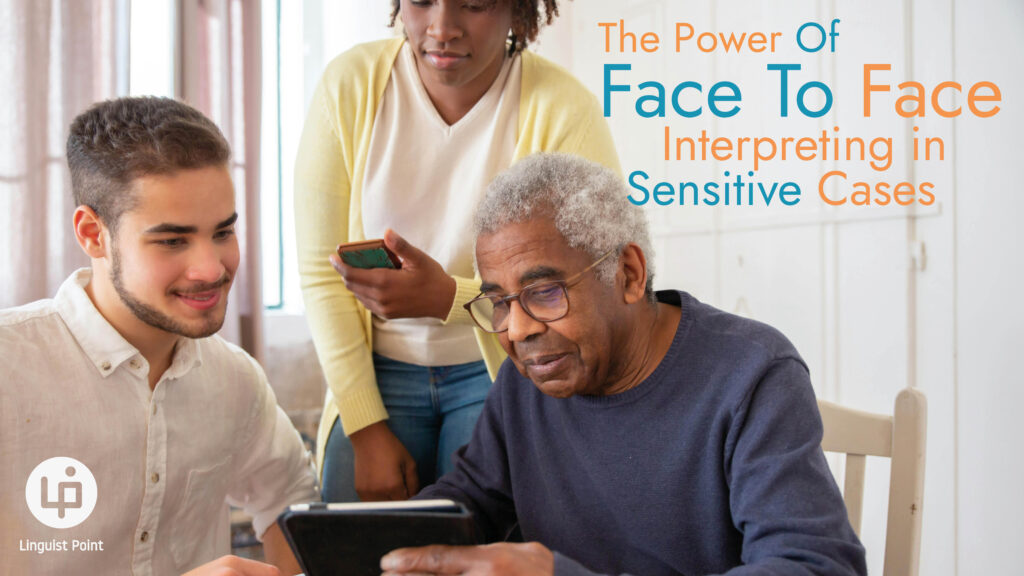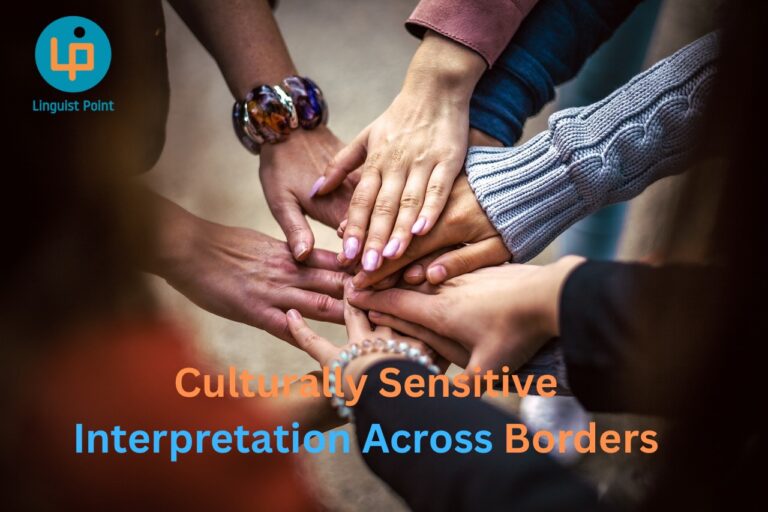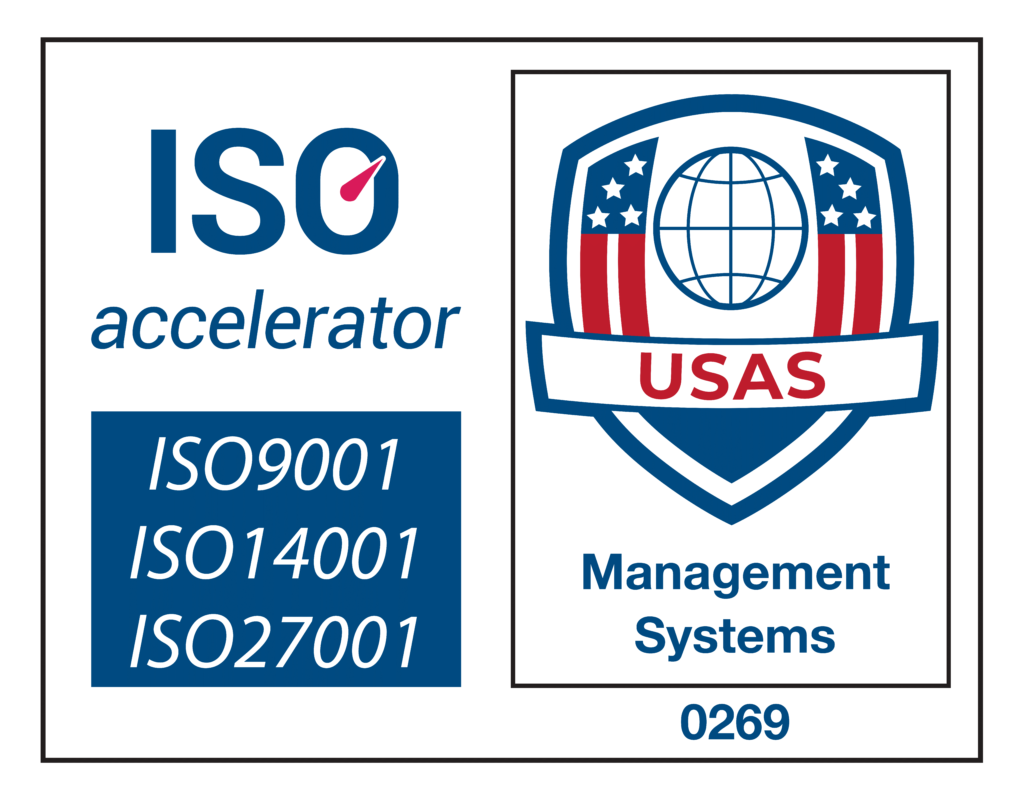Face to face interpreting is essential in sensitive situations, especially when language barriers exist. This form of interpreting provides a personal, human touch that not only conveys the intended message but also builds trust between parties. Unlike remote or written alternatives, in-person effective interpretation fosters genuine connections, reduces misunderstandings, and creates an environment of mutual respect.
Why Trust Matters in Sensitive Cases
Moreover, in fields such as healthcare, legal services, and social work, sensitive cases often involve high stakes. Miscommunication can lead to mistrust, poor outcomes, or even legal consequences. Face to face interpreting ensures that all parties feel heard and understood. This is in turn can lead to a solid foundation of trust.
Enhancing Emotional Connection
Face to face interpreters can convey more than just words. They capture non-verbal cues, such as tone and body language, which are critical in expressing empathy and understanding. These nuances are particularly important in sensitive cases, where emotions often run high.
Ensuring Cultural Competence
An interpreter with cultural awareness can mediate not only linguistic differences but also cultural misunderstandings. This capability fosters trust by showing respect for the client’s cultural background, enhancing the overall experience.
The Advantages of face to face interpreting

Accurate Communication
Face to face interpreting reduces the risk of misinterpretation that can occur in written or remote formats. Interpreters can seek clarification on the spot, ensuring messages are conveyed accurately.
Immediate Feedback
In-person interpreters can respond to visual cues or client hesitations, making adjustments to their interpretation in real time. This adaptability ensures smoother communication.
Privacy and Confidentiality
Sensitive cases often involve confidential information. Having an interpreter physically present reassures clients that their information is handled securely, without the technological vulnerabilities associated with remote interpreting.
Applications of face to face interpreting in sensitive cases
Healthcare
In medical consultations, misunderstandings can lead to misdiagnoses or improper treatments, this helps bridge the gap between doctors and patients, ensuring clear communication about symptoms, treatment plans, and concerns.
Legal Settings
In legal scenarios, accurate interpretation can mean the difference between justice being served or denied. face to face interpreters help clients navigate complex legal systems while fostering trust between solicitors and clients.
Social Work
Social workers often handle emotionally charged situations. Face to face interpreting enables them to communicate compassionately with clients, ensuring vulnerable individuals feel supported and understood.
How Linguist Point Ensures Trustworthy face to face interpreting
At Linguist Point, our face to face interpreting services prioritise accuracy, impartiality, and cultural competence. Our interpreters are not only certified and qualified but also deeply experienced in handling sensitive cases. Whether it’s a court proceeding, a medical consultation, or a social work meeting, we deliver unmatched professionalism to ensure trust and understanding.
Certified Professionals
All our interpreters hold professional certifications and are DBS-checked, guaranteeing that your sensitive cases are handled by reliable individuals.
Tailored Services
We match interpreters based on their expertise and the specific needs of each case. This personalised approach fosters trust and ensures effective communication.
24/7 Availability
Sensitive cases don’t adhere to a 9-to-5 schedule. Our face to face interpreting services are available around the clock, providing support whenever it’s needed.
Internal and Outbound Links
For more insights into our services, check out our Business Interpretation Services. Learn more about interpreting standards at National Register of Public Service Interpreters (NRPSI) and the benefits of cultural competence in interpretation at Cultural Humility and Interpreting.
Why Choose face to face interpreting Over Remote Alternatives
While remote interpreting has its place, it lacks the personal interaction that is crucial in sensitive cases. Remote formats may miss non-verbal cues, fail to establish rapport, or fall victim to technical glitches, all of which can compromise trust. In contrast, face to face interpreting offers a level of connection and reliability that no technology can replicate.
Conclusion: Building Trust Through Personal Connection
In sensitive situations, trust is not a luxury—it’s a necessity, this builds trust through accurate communication, cultural competence, and genuine human interaction. By choosing this approach, organisations can ensure their clients feel valued and understood, fostering better outcomes and long-term relationships.
Invest in professional face to face interpreting services to bridge language barriers and build trust where it matters most. At Linguist Point, we’re here to help you make meaningful connections that drive positive results.







